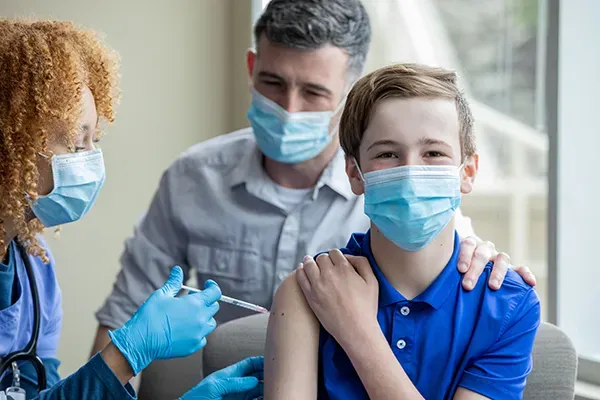On May 25, 2021, the biotech company Moderna issued a press release with updates on its COVID-19 vaccination trials in adolescents, known as the TeenCOVE study.
According to the release, the study produced promising results, showing 93% efficacy following the administration of the first dose, and 100% vaccine efficacy two weeks following the administration of the second dose (at which point one is deemed fully vaccinated).
Because of the effectiveness of the vaccination in younger populations, Moderna plans to submit the data in order to gain Emergency Use Authorization (EUA) through the US Food and Drug Administration (FDA).
"We will submit these results to the US FDA and regulators globally in early June and request authorization. We remain committed to doing our part to help end the COVID-19 pandemic," stated
Moderna's chief executive officer, St éphane Bancel. Moderna's randomized, placebo-controlled TeenCOVE study consisted of 3,732 participants aged 12 to 17 in the United States. None of the adolescents tested positive for the coronavirus after receiving their second dose of the vaccine. The most common side effects reported by the trial participants include localized site pain, headache, fatigue, chills, and muscle pain.
It doesn't end there
For young participants in these COVID-19 vaccine trials, there is more to it than merely two jabs a month apart. Volunteers have to fit specific criteria in order to take part in the TeenCOVE study, which include falling into the 12–17-year-old age group, having good health, having received no diagnosis of COVID-19 throughout the pandemic, having made no international travel, not smoking or having had a history of smoking, and not engaging in other trials. Participants are also tested for the coronavirus via nasal swabs prior to vaccination administration.
Although the data results from the trial are in, the study remains ongoing, and will last about 13 months total, since doctors need to monitor the participants for 12 months following their second dose for safety and protection reasons, which involves a total of six visits to the study clinic, and two video or phone visits with study doctors.
How the vaccine works
Moderna's COVID-19 vaccine was co-developed by investigators at the National Institute of Allergy and Infectious Diseases (NIAID) Vaccine Research Center. It is an mRNA vaccine, meaning that it does not contain any live virus, unlike other vaccines, which more commonly use weakened versions of viruses.
Once the vaccine is administered, the mRNA tells the body to make a spike protein after it reaches the cells. The cells then display the spike protein on the surface, which allows for the immune system to recognize the "invader," thus triggering an immune response. Antibodies begin to form, and the cells break down the mRNA to get rid of it. By the end of this process, the body of the vaccinated individual has learned how to combat the virus.
Who's next?
Moderna continues to strive toward vaccinating all age groups, and with the positive data coming from the TeenCOVE study, that means placing greater emphasis on the KidCOVE vaccination study, a two-part study in the six-month- to 11-year-old age group. So far, there are about 6,750 participants, and the biotechnology company plans to sort them into three age groups: first, those 6–11 years old, then those in the 2-to-5-year age group, and finally those aged six months to one year. Currently, Moderna is still recruiting for the KidCOVE study.
The Centers for Disease Control and Prevention (CDC) estimates that over 124 million doses of the Moderna vaccine have already been administered to adults in the United States, and depending on what the FDA determines with the data from the TeenCOVE study, that number could increase considerably.


